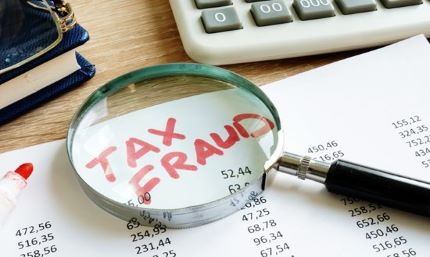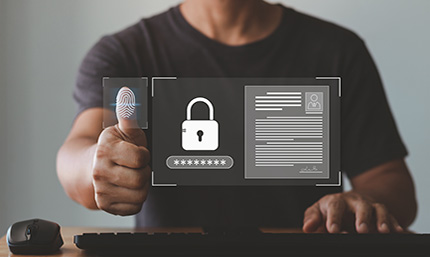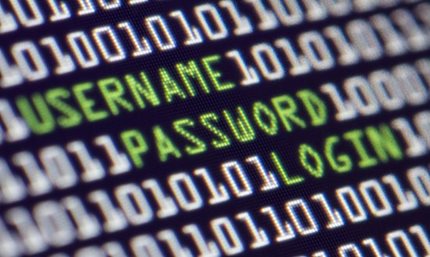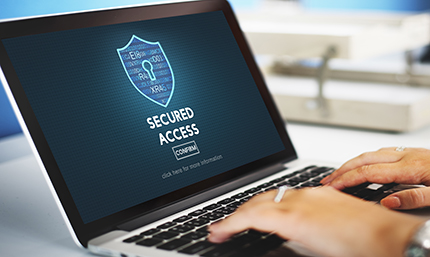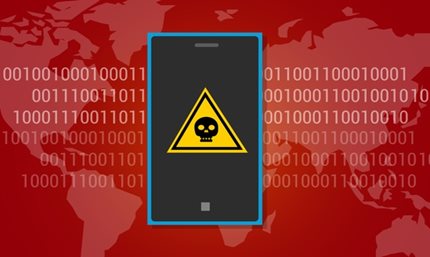News & Tips
5 Tips for Safeguarding Your Personal Info

Space Coast Credit Union (SCCU)’s Members’ Watchdog symbolizes our commitment to protect our members and their financial interests. When we become aware of fraud that could potentially affect our members, we do our best to let them know as soon as possible and take precautionary steps to protect them and their accounts.
Whether it’s debit/credit card fraud, account fraud, or identity theft, most of us have either heard about or personally experienced some type of fraud. Cyber criminals are continually looking for ways to access computer systems and lure unsuspecting people into divulging personal information or being an unwitting participant in a fraud scheme; because of this, we must remain vigilant at all times.
Here are the top 5 things you can do to protect yourself and safeguard your information:
1. Be Suspicious of Unsolicited Calls, Emails and Texts
First and foremost, be aware that SCCU will never request personal information (such as account numbers, social security numbers, birth dates, or driver’s license numbers) through outbound phone calls, emails, or text messages that a member did not first initiate.
What this means is that if you reach out to us, we will ask for verifying information to confirm that you are who you say you are; however, we will not initiate a phone call, text, or email asking you to provide any personal information.
If you receive an unsolicited phone call, email, or text message–do not respond, and if they have links, do not click them. When in doubt, contact us immediately, by calling us at 800-447-7228 or using Chat Live on SCCU.com, to report suspicious activity.
2. Keep Your Contact Info Up to Date
Make sure we have your current address and phone numbers on file. You may update your information securely in your Online or Mobile Banking account at any time. This will help ensure we have the most current information available in the event we need to contact you regarding suspected fraudulent activity.
Maintaining an updated mobile phone number is critical in the event we detect unusual activity on your debit or credit card. We understand having your card blocked, even temporarily, can be a huge inconvenience; however, if we cannot reach you when fraud is detected, blocking the card may be the only way to protect your account. Here’s what to do if your card has been lost or stolen.
- If you’re traveling, you may also run into your card not working due to suspected fraudulent out-of-town activity. Here’s how to set a travel notice at SCCU and more about how to prevent identity theft while traveling.
- Did you know that you can turn your cards “on” or “off” with Manage Cards in Online & Mobile Banking? You can also set spending limits, restrict transaction types, set location restrictions, and more!
- If you’d like, you can also add your SCCU cards to your phone’s digital wallet, which offers oodles of security features too. Learn all about the benefits of digital wallet here.
3. Don’t Share Passwords or Verification Codes with Anyone
It’s a good idea to make your passwords complex, meaning a combination of upper and lower case letters, numbers and symbols. Avoid using passwords that are easy to guess, such as your pet’s name or generic passwords like “password123.” If you believe your password has been compromised, change it as soon as possible. Turn on multi-factor or two-factor authentication for accounts where possible.
In that same vein, do not share your Personal Identification Number (PIN) either. If you believe your PIN has been compromised, change it as soon as possible. You can do so at a branch or ATM, or by calling SCCU’s card activation line at (888) 314-6005.
Additionally, never share the verification codes that you receive by text or email with anyone, not even a bank or credit union employee (or people who claim to be).
4. Always Err on the Side of Caution
You’re probably familiar with the saying, “If it seems too good to be true, it probably is.” For example, never accept money from a stranger in return for a fee. You may find yourself a victim of fraud, having to repay thousands of dollars for a returned check or, worse, being an accessory to a crime. Keep in mind that accepting funds from someone you don’t know and forwarding those funds to a third party may be considered money laundering, even if you were not aware of your involvement.
Here are some common scams to watch out for:
- Scammers impersonating someone who works for a student loan forgiveness program, a cryptocurrency company, a tech support company, or a fraud prevention department claiming that they need you to make a payment or give them sensitive information because your accounts may have been hacked, they can recover money, or that they need to “fix a problem.”
- Scammers may also create fake job listings that request payments for equipment/supplies or credit card/social security number for background checks.
- Scammers pretending to be a friend or family member in distress and that they need you to send them money as soon as possible. Try not to react and stay on guard. Cyber criminals may have hacked into their accounts, or they may have recorded your loved one’s voice somehow and are using artificial intelligence to sound like them. Reach out to the supposed person through a known contact method and double-check their story.
If someone reaches you out of the blue, uses scare tactics, or pressurizes you into responding quickly with personal/financial information, it’s likely a scam. It’s best to ignore the request and remove yourself from the situation. You can check the legitimacy of an organization by researching for credentials/verifications online and checking third-party ratings and reviews. Use a published phone number to reach out to the organization—never use a phone number that you receive in an email or text message.
Here’s more information about money transfer app scams and other popular fraud scams.
5. Last But Not Least, Monitor Your Accounts
Monitor your accounts often, and report any unauthorized or suspicious activity as soon as possible. Remaining vigilant and keeping your contact information up to date and your password secure are just a few things you can do to protect yourself from being a victim of fraud. If SCCU detects suspected fraudulent account activity, we notify members with real-time text message alerts.
It’s also easy to set up alerts for balance and transaction info in your Online or Mobile Banking account to help you stay on top of account activity.
More About Fraud Prevention at SCCU
SCCU provides a variety of safety measures and precautions to keep your accounts safe, and we continually look for new ways to do so. Our Fraud Prevention Center page includes helpful tips, infographics, articles, and other resources to help protect your financial interests. Keep an eye out for our Fraud Prevention Tip of the Month in the Watchdog Report, SCCU’s monthly eNewsletter.


